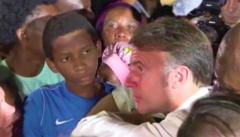Despite initial expectations for the bill to pass easily, the opposition's unexpected rejection has left Australia's foreign student cap proposal in limbo, raising concerns about the stability and sustainability of the education industry valued at A$50bn.
Australia's Foreign Student Bill Sparks Continued Debate Amid Legislative Uncertainty

Australia's Foreign Student Bill Sparks Continued Debate Amid Legislative Uncertainty
The fate of a controversial bill proposing to cap foreign student numbers in Australia remains uncertain after opposition voices emerged against it, affecting the higher education sector and the economy.
Australia's ongoing debate surrounding a controversial bill to cap the number of foreign students has taken an unpredictable turn following a surprising shift in support among opposition parties. The proposed legislation aimed at curbing overall migration into Australia faced widespread criticism from universities concerned about its potential negative impact on the higher education sector's reputation and functionality.
Officials from the Labor government, advocating for the bill, argued that such measures were necessary to create a sustainable education sector while addressing the pressing housing shortage that has been associated with high immigration levels. Originally, the bill was anticipated to pass with some backing from the opposition; however, a last-minute announcement by opposition leader Peter Dutton has left the situation in disarray.
Dutton described the bill as "a dog's breakfast," signalling his coalition's intention to vote against the proposed cap that would limit new enrolments to 270,000 in 2025, a substantial reduction from 2024 figures. This unexpected opposition has raised alarms among university representatives, with Luke Sheehy from Universities Australia expressing that this legislative indecision brings no relief, indicating a grim outlook for international students amid the politically charged atmosphere.
While some universities experienced job cuts and rejected applications in anticipation of the bill's approval, foreign students are reportedly increasingly choosing other countries due to the prevailing instability and lack of confidence in Australia's higher education sector. With the legislation still pending in the Senate, the imminent academic year could see shifts in student enrolments that may cause even more financial strain on regional universities.
The ongoing contention has drawn contrasting viewpoints from various political factions; the Greens termed the bill as exploitative, suggesting it unfairly blamed international students for the housing crisis. Meanwhile, the government's critiques of Dutton have underscored his previous comments regarding immigration control, raising questions about the consistency of opposition messaging.
As the debate continues without a clear resolution, experts warn that the uncertainty is not only affecting prospective students but also threatening the economic contribution of the A$50bn industry. The situation leaves universities in a precarious position, anticipating fluctuating enrolment numbers while navigating a politically fraught environment where the future of international education remains unclear.






















